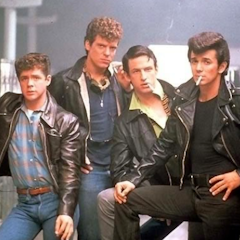
Articles on US Supreme Court
Displaying 481 - 500 of 675 articles

The now-confirmed supreme court judge repeatedly lost his cool during his recent appearance in the senate. Is that what we need from lawmakers?

A masculinities scholar weighs-in on the the reverberations of the recent Supreme Court hearings and what he calls a disturbing message of “boys will be boys.” Men need to stop validating this lesson.

Many states are also eroding a woman’s right to access abortions.

The bitterly contested hearings to confirm Brett Kavanaugh as the newest justice to the U.S. Supreme Court were more of a show trial than a legal procedure.

A change of heart on preferences appears to have cost the high-profile independent in Wentworth, while the controversy around Brett Kavanaugh’s confirmation has been of benefit to Donald Trump.

The longstanding, historical notion of the judge as an independent, non-partisan interpreter of the law may never truly recover.

An English professor says educators should use “Speak” – an often banned novel about sexual assault – to engage young people about the topic.

Brett Kavanaugh presented himself as a good and reputable man in his recent Senate hearing. But a man’s social status and education tell us nothing about whether he’s likely to commit sexual assault.

One striking feature of Brett Kavanaugh’s testimony was the number of times he interrupted. Data shows that hearing interruptions are becoming more common, particularly when the nominee is female.

Whether the sins of our past stay with us forever has become a pertinent question of our time. A philosopher argues we don’t need to carry our past burdens – although there are some moral conditions.

‘Grease 2’ – which, according to Kavanaugh’s calendar, he saw on June 16, 1982 – is an example of the brand of entitled masculinity that appeared in the era’s teen flicks.

Before she became a Supreme Court justice, the late Ruth Bader Ginsburg’s work as an attorney in the 1970s changed the court’s approach to women’s rights and how we think about women – and men.

Senators followed a playbook familiar to millions of women. In promoting men, companies and other organizations have frequently brushed aside allegations of sexual assault and harassment.

Contentious or politically driven Supreme Court nominations are not new. But US history shows that many of those contested nominees who were confirmed would go on to author controversial opinions.

What exactly do we mean by teenage behavior? And who gets to be this kind of teenager?

The Masterpiece Cakeshop case in the Supreme Court was not just a showdown over gay rights and religious liberty. It also reveals an ongoing process of redefining US suburban life as more diverse.

More than two dozen states and cities are suing over a controversial new citizenship question.

Kavanaugh thinks judges ‘must be an umpire – a neutral and impartial arbiter.’ So does Chief Justice Roberts. But more liberal jurists believe that the application of the law is inherently subjective.

A law professor writes “the future of Roe v. Wade looks tenuous.” That gives more power to the states – including four that have passed “trigger laws” to outlaw abortion if Roe is overturned.

A battle over the Second Amendment is exactly the wrong way to think about the government’s role in the firearms industry.





